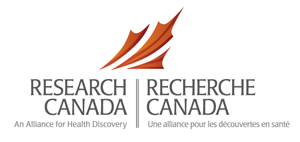Alberta Human Services sending boxes of supplies to new families
CBC News Posted: Jan 14, 2016 4:00 AM CT Last Updated: Jan 14, 2016 10:39 AM CT
It can be scary becoming a first-time parent but a new program in Alberta could set a standard across Canada to make that transition a little bit easier.
Welcome to Parenthood, a pilot program, has started handing out “baby boxes” to new moms and dads in that province. The boxes include such things as diapers and a thermometer.
People behind the program are also gathering information about new parents, and their needs, and that research could be used across the country.
“We have been very careful, very cautious about what it is that we are putting into the baby kits,” Karen Benzies, from the Welcome to Parenthood study, said.
The “baby box” is used in many Scandinavian countries and has been handed out in Finland since the 1930s. Those countries have lower infant mortality rates and Benzies said it’s because of a combination of support for families, health services, and social services.
“We are doing something similar in Alberta by building in supports around the family with specialized parenting education [and] mentorship,” she said. “We are using the box — or the baby kit which is the box and the contents — we are using that as an engagement tool to reach out to families.”
A lot of people have moved to Alberta over the past few decades and Benzies said that means the usual supports that people have from relatives is not always available.
The box will provide a bassinet which meets Canadian regulations, a mattress for the baby, some clothing, a thermometer and educational materials like emergency phone numbers and books. People receiving a box will also be matched with mentors.
Benzies said they hope the program will lead to increased mental and physical health for the parents and babies.
Although not in the works for Saskatchewan yet, the research could lead to changes in this province.
“Our job … with this research study is to create the best evidence around the effectiveness of this support, education, mentorship, and the tangible resource (or the box) with its context,” Benzies said. “Our job is to create the evidence to inform decisions by provincial governments.”
Although the infant mortality rate in Saskatchewan has decreased since 2005, according to Statistics Canada, in 2012 Saskatchewan was tied with Newfoundland and Labrador for the third-highest rate of infant mortality for any province in the country. Saskatchewan was at 5.5 deaths per 1,000 children less than one year old, while Canada’s average was 4.8 deaths per 1,000 children of that age.
